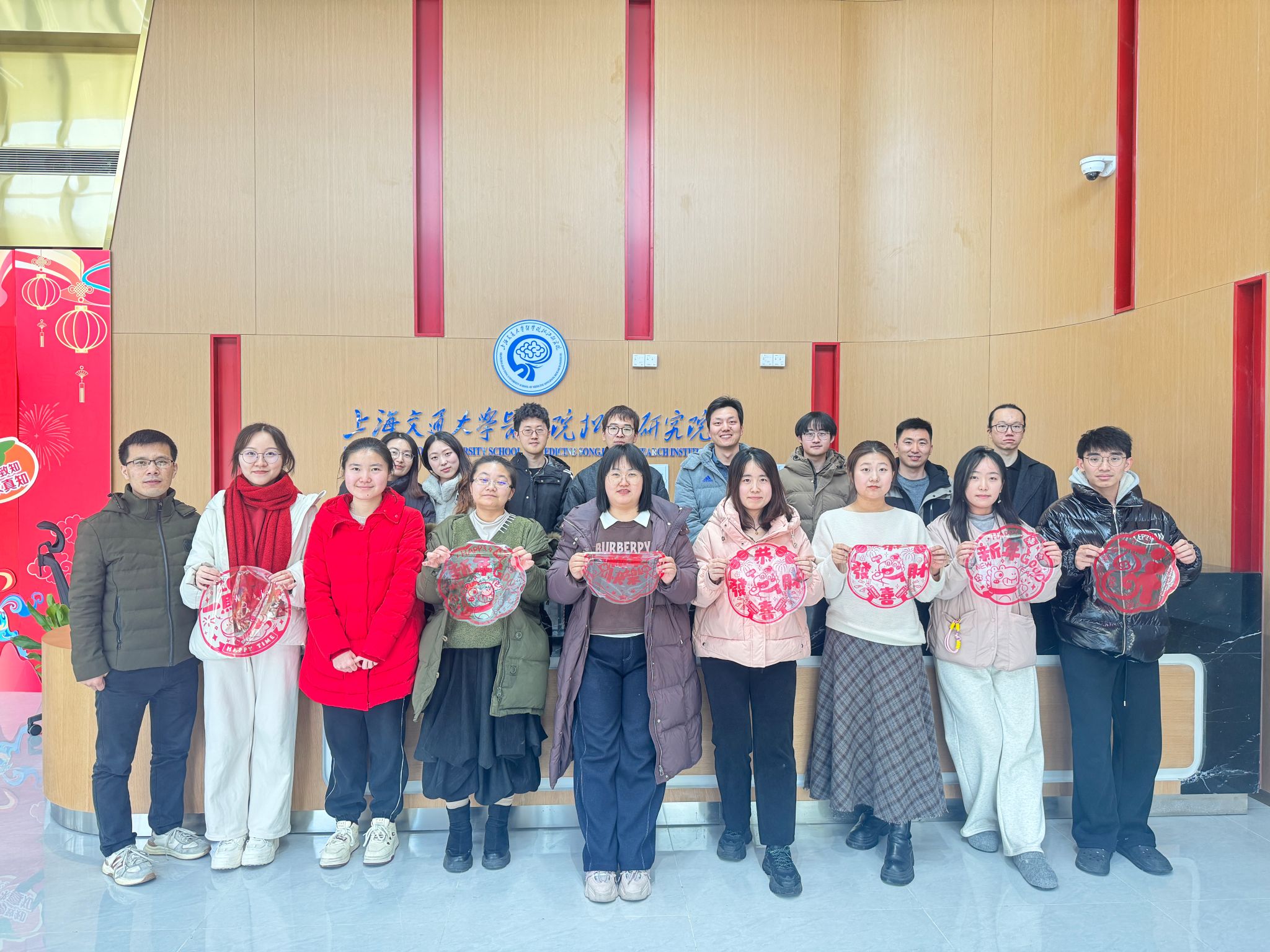Education
Wannan Medical College, China B.S., 06/2012, Pharmacy
Wannan Medical College/Fudan University, China M.D. 06/2015, Pharmacology
Fudan University, China Ph.D., 06/2018, Sleep, Pharmacology
Positions
2018-2023 Postdoctoral fellow, University of North Carolina, Chapel Hill
2023- Principal investigator, Shanghai Jiao Tong University, School of Medicine
 Ya-Dong Li
Ya-Dong Li
1. Neuronal circuits underly sleep-wake behaviors.
The ventral basal ganglia play a crucial role in regulating arousal and related motivation. We established causal connections between the activity of dopamine D1 receptor-positive neurons in the Nucleus accumbens (NAc) and specific behaviors such as sleep-wake cycles, locomotion, and feeding behaviors (Nat Commun, 2018). Notably, both NAc D1R and D2R neurons project to the ventral pallidum (VP). Further investigations revealed that GABAergic neurons in the VP are involved in regulating arousal related to motivation through their connections with the ventral tegmental area (Mol Psychiatry, 2021). Additionally, we discovered that VP glutamatergic neurons have a distinct role in modulating cortical activity and influencing low motivation (iScience, 2023). These findings provide valuable insights into the complex neural circuits underlying arousal, motivation, and related behaviors, shedding light on potential therapeutic targets for conditions involving dysregulation in these processes.
2. Circuit-modified adult hippocampal neurogenesis activity dependently regulates memory and emotion.
Adult hippocampal neurogenesis is a crucial process that plays a significant role in memory and emotional processing. It is dynamically regulated by neural circuit activity. However, it remained uncertain whether manipulating neural circuit activity could produce substantial neurogenic effects capable of influencing behavior. Our research has shed light on this matter. We discovered that the hypothalamic supramammillary nucleus (SuM) synchronizes with the dentate gyrus (DG) to modulate spatial memory retrieval by releasing glutamate (eLife, 2020). Subsequently, we identified a pivotal hypothalamic circuit that links novelty signals to the generation and maturation of adult-born neurons (ABNs). This finding emphasizes the role of activity-dependent modifications in circuit-connected ABNs in regulating behavior (Nature Neuroscience, 2022). Building on these insights, we proposed that a multi-faceted approach to enhance adult-born neurons, encompassing their numbers, properties, and activity levels, is essential for improving behavioral outcomes (Curr Opin Neurobiol, 2023). We then applied this strategy to rescue cognitive and emotional deficits in Alzheimer's disease and conducted a functional dissection of the underlying mechanism by which ABNs activity-dependently regulate memory (Cell Stem Cell, 2023). These findings hold promise for developing novel interventions to address cognitive and emotional impairments in Alzheimer's disease and advance our understanding of the role of adult-born neurons in memory regulation.
3. sleep disorders and cognitive deficits in in Alzheimer’s disease
Alzheimer's disease (AD) patients commonly experience sleep disorders, alongside cognitive deficits, particularly in memory functions. Our research focuses on addressing these disturbances in sleep-wake patterns and memory impairment by targeting the affected brain regions. Additionally, we aim to delve into the intricate cellular and molecular mechanisms underlying these memory-related brain regions to develop potential therapeutic interventions.
4. Neurocircuit mechanisms of chronic pain-induced sleep disorders
Chronic pain often leads to the development of sleep disturbances. However, the precise neural circuit mechanisms responsible for sleep disorders in chronic pain have remained largely unknown. Our research identifies pyramidal neurons (PNs) in the anterior cingulate cortex (ACC) specifically control chronic-pain-induced insomnia via enhanced activity and plasticity of ACC-dorsal medial striatum (DMS) dopamine D1R neuron synapses (Neuron, 2024). These findings address a long-standing gap in the understanding of how chronic pain induces sleep disorders and shed light on potential therapeutic targets for chronic-pain-induced sleep disorders.
-
 Qi Yang PhD student, class of 21 (joint training)
Email:yangki28@163.com
Research Direction:social dominance behavior and sleep
Qi Yang PhD student, class of 21 (joint training)
Email:yangki28@163.com
Research Direction:social dominance behavior and sleep
-
 Xinyi Xiao PhD student, class of 23 (joint training)
Email:xiaoxinyi1211@sjtu.edu.cn
Research Direction:Tactile sensation and sleep
Xinyi Xiao PhD student, class of 23 (joint training)
Email:xiaoxinyi1211@sjtu.edu.cn
Research Direction:Tactile sensation and sleep
-
 Mingyang Tang PhD student, class of 23 (joint training)
Email:tang19970619@163.com
Research Direction:Mechanisms of sleep disorders
Mingyang Tang PhD student, class of 23 (joint training)
Email:tang19970619@163.com
Research Direction:Mechanisms of sleep disorders
-
 Wei Yao, Research assistant
Email:1009910965@qq.com
Research Direction:
Wei Yao, Research assistant
Email:1009910965@qq.com
Research Direction:
-
 Xiao Chen PhD student, class of 23 (joint training)
Email:luchenxiaoiu@163.com
Research Direction:Anesthesia and cognitive dysfunction
Xiao Chen PhD student, class of 23 (joint training)
Email:luchenxiaoiu@163.com
Research Direction:Anesthesia and cognitive dysfunction
-
 Shuai Zhang, Postdoctoral Researcher
Email:neurozhang_s@163.com
Research Direction:The regulatory effect of sleep on learning and memory
Shuai Zhang, Postdoctoral Researcher
Email:neurozhang_s@163.com
Research Direction:The regulatory effect of sleep on learning and memory
-
 Xiaofan Ma, Resident Physician
Email:mmup1997@foxmail.com
Research Direction:Neural Circuit Mechanisms of Comorbid Pain in Depression
Xiaofan Ma, Resident Physician
Email:mmup1997@foxmail.com
Research Direction:Neural Circuit Mechanisms of Comorbid Pain in Depression
-
 Wang Tingting, Postdoctoral Researcher
Email:cnwangtingting@163.com
Research Direction:Molecular and Neural Circuit Mechanisms in Peripheral Modulation of Cognitive Processes
Wang Tingting, Postdoctoral Researcher
Email:cnwangtingting@163.com
Research Direction:Molecular and Neural Circuit Mechanisms in Peripheral Modulation of Cognitive Processes
-
 Lianxiang Jiang Attending physician
Email:doctorjang@163.com
Research Direction:Neurocircuit mechanisms of cognitive impairment after anesthesia
Lianxiang Jiang Attending physician
Email:doctorjang@163.com
Research Direction:Neurocircuit mechanisms of cognitive impairment after anesthesia
-
 Jian Huo Class 22 Joint Masters Candidates
Email:492026795@qq.com
Research Direction:Neurocircuit mechanisms of memory impairment in painful insomnia
Jian Huo Class 22 Joint Masters Candidates
Email:492026795@qq.com
Research Direction:Neurocircuit mechanisms of memory impairment in painful insomnia
-
 Qingsong Yu PhD student, class of 23(joint training)
Email:yuqingsong98@163.com
Research Direction:Neurocircuit mechanisms of sleep disorders in Alzheimer's disease
Qingsong Yu PhD student, class of 23(joint training)
Email:yuqingsong98@163.com
Research Direction:Neurocircuit mechanisms of sleep disorders in Alzheimer's disease
-
 Weikun Su PhD student, class of 23
Email:791818591@qq.com
Research Direction:Cellular and synaptic mechanisms by which arousal modulates memory
Weikun Su PhD student, class of 23
Email:791818591@qq.com
Research Direction:Cellular and synaptic mechanisms by which arousal modulates memory
-
Li YD, et al. (2024), Anterior cingulate cortex projections to the dorsal medial striatum underlie insomnia associated with chronic pain, Neuron, 2024.

-
Ya-Dong Li,#Yan-Jia Luo,#Ling Xie, Dalton S. Tart,Ryan N. Sheehy, Libo Zhang, Leon G. Coleman, Jr.,Xian Chen, and Juan Song*(2023).Activation of hypothalamic-enhanced adult-born neurons restores cognitive and affective function in Alzheimer’s disease.Cell Stem Cell30, 415–432

-
Li Y#, Luo Y#, Chen Z, Quintanilla L, Cherasse Y, Lazarus M, Huang Z, Song J* (2022). Hypothalamic modulation of adult hippocampal neurogenesis in mice confers activity-dependent regulation of memory and anxiety-like behavior.Nat Neurosci25:630-45.

-
Li Y#; Luo Y#, Xu W, Ge J, Cherasse Y, Wang Y, Lazarus M, Qu W* & Huang Z* (2021). Ventral pallidal GABAergic neurons control wakefulness associated with motivation through the ventral tegmental pathway.Mol Psychiatry26:2912-28.

-
Li Y, Bao H, Luo Y, Sullivan Y, Quintanilla L, Wickersham I, Lazarus M, Shin Y, Song J* (2020). Supramammillary nucleus synchronizes with dentate gyrus to regulate spatial memory retrieval through glutamate release.eLife9:e53129.

-
Luo Y#,Li Y#, Wang L#, Yang S, Yuan X, Wang J, Cherasse Y, Lazarus M, Chen J, Qu W*, Huang Z* (2018). Nucleus accumbens controls wakefulness by a subpopulation of neurons expressing dopamine D1 receptors.Nat Commun9:1576.











 Location:
Location:
